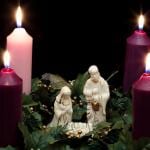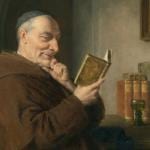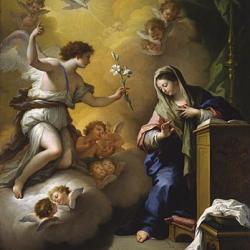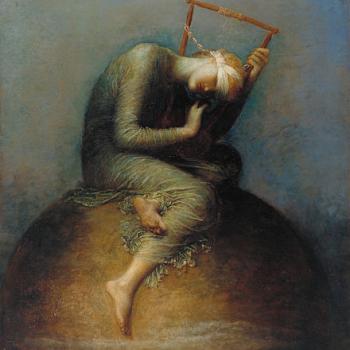I think this story is mostly true. This family was on vacation and they stopped for the night in a motel. The next morning the mother gets up early and is out to the car to get things going, so they can have an early start to the day. She’s kina groggy and tired. So, she gets back to the motel room. As she enters, she gets very irritated because she thinks her husband is still in bed sleeping away. So of course, she yells at him.
“GET UP OUT OF BED!”
The man in bed sits up wide eyed. She then realizes that it’s not her husband and that she is in the wrong room. As she slips out of the room, she hears the man say,
‘That was some Wake-Up Call’.

The readings of the first Sunday in Advent remind us of a wake-up call so to speak. The wakeup we hear in the gospel reminds us to be alert, to be mindful and to be watchful. What we have to be alert for is the coming of Christ. The coming of Christ at the end of human history where he comes in glory or perhaps at the end of our own personal history. So, the sense is to be aware and to be watchful.
And how we are to be watchful? By being a person of prayer. By being connected to a relationship with the Lord. And also expressing our love for the Lord in the good and compassion we expend to others. The sense of being on watch or being alert is be alert to the life of faith. Very often our culture bombards us with messages about distraction and in the big picture of things, a little distraction is not a bad thing to be sure, but sometimes it can become a way of life.

And so, because of all the things that distract us, it is important to remember what is important in life and what is important is to hear the word of God and let that word permeate our hearts and our lives with love and to put that love into action in how we live. And with the sense of expectation we await the coming of the Lord, but not in fear or cowering.
An imperfect analogy is waiting for a loved one coming in on a plane. When you are waiting you have that sense of hope and joyful expectation in seeing your loved one once again. So, it is also that sense of waiting in joyful hope for the coming of our savior. At the beginning of Advent, the particular focus is on Christ the king coming in glory and coming at the end of history. It is a bridge to the end of ordinary time that we just finished because the focus was also Him coming in glory at the end of human history. That is the theme of the first part of advent.
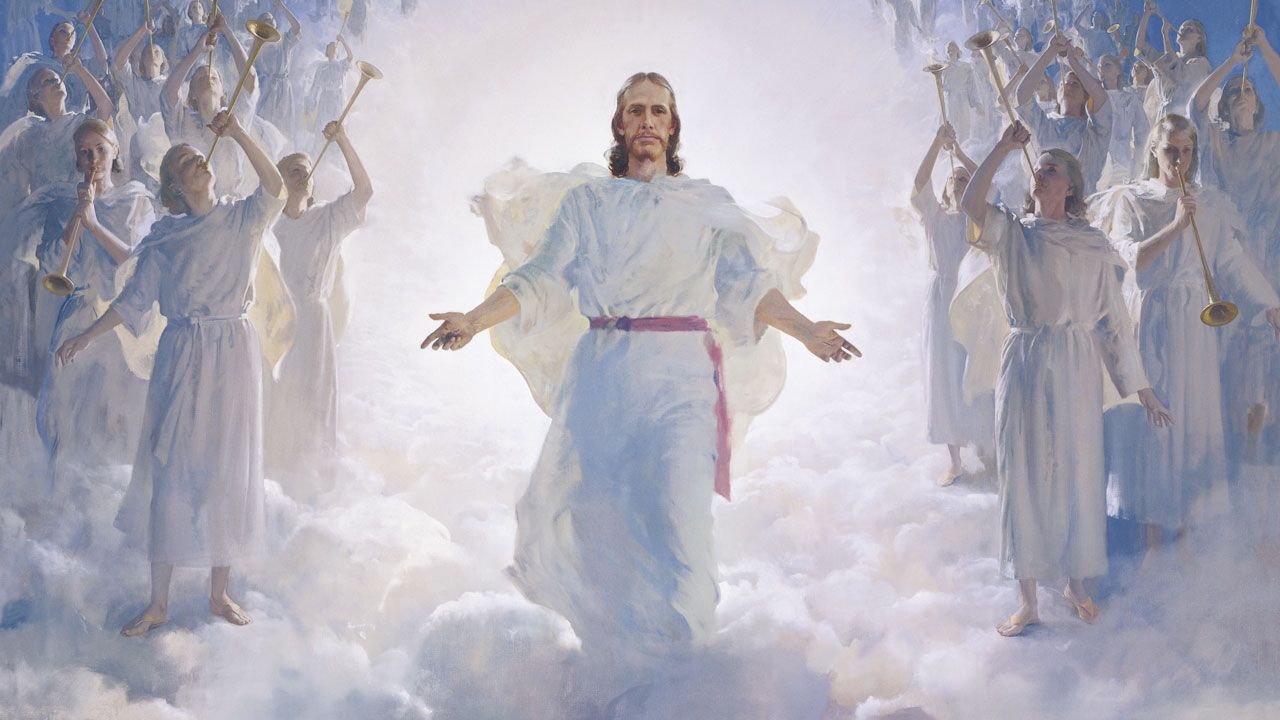
After December 17th the focus will shift to reflect on Christ coming in human history 2000 years ago. Christ of course has come once in a definitive way, taking on human flesh. We celebrate his birth on December 25th. So, what are we looking forward to as we prepare for the feast of Christmas? I think it is a longing for the Lord coming into our lives. That sense of a hunger for Christ. A hunger for his love. Or to put it in another way, we know our need for a savior. Just like the old testament prophets who had the sense of waiting for the coming of the messiah. They knew they could not save themselves. They were looking for that messiah. So too we know that we cannot save ourselves, but we need a savior to save us from sin and death and to give us that gift of eternal life.
‘O Come O Come Emmanuel’, is a very familiar advent hymn. It probably has its origins in the 8th or 9th century. The monks in the monastery were probably chanting this hymn in the evening prayer or vespers. These are prayers of joy and thanksgiving. In the days before Christmas there was an antiphon that includes the Magnificat and it always started with an O. And so, when you look at all the verses of the song it takes some of those other O antiphons from vespers. And so, the translations we have in English are probably from the 1861 translation from John Neal. The earliest version we have in the original form comes from the 17th century. The music melody that we have for it, the earliest version, comes from the 15th century. So, it’s a very traditional hymn with history of development.
O come O come Emmanuel and Ransom Captive Israel.
That sense of being a captive. In the antient world it was very dangerous to travel. You didn’t want to go alone, because you might be kidnapped and held captive for ransom. And while you were kidnapped and held for ransom there was not a whole lot you could do. You were kind of powerless while you were waiting for someone to pay it off so you could be released and set free. And so, Israel is that captive, captive by sin. They were waiting for a savior to set them free.
O Come O Come Emmanuel
And Ransom Captive Israel
That Moans in Lonely Exile Here.
To be a captive is to be isolated, is to be in exile, until the son of God, the messiah comes.
We too have that same longing and need for a savior in our lives.
We do not save ourselves. We are dependent on God. God is the Potter and we are the Clay.
We allow ourselves to be molded by God’s love for us and then we walk the path of faith.
We walk by faith and not by sight.
We begin our advent journey in that sense of a wake-up call. The beginning of the new year, the beginning of the new church liturgical year. The beginning of waiting for Christ coming in glory at the end of human history and also the need for a savior and messiah to come into our hearts at the here and now. And of course, he does come in the appearance of bread and wine as we gather around the alter at mass to receive his presence of Christ. He comes truly into our hearts at mass that he might encourage us on the journey of faith to help us with all the difficulties we might have in this life as we place all of our trust in him.
Homily of Fr. John Rowen at St. George’s Church 1st Sunday of Advent November 1st 2020


